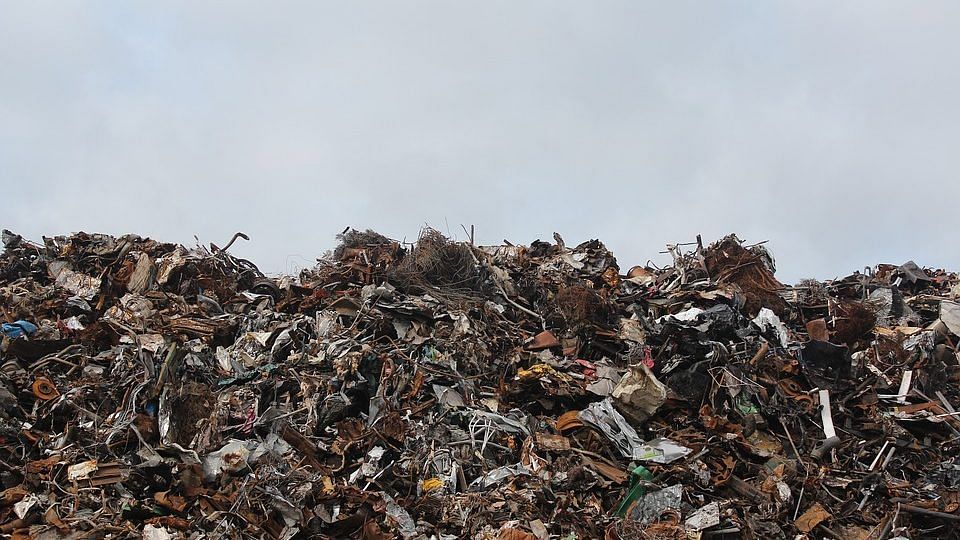When food waste goes to landfill it releases methane, a greenhouse gas more potent than carbon dioxide. One way to make sure your leftovers aren’t left to rot like this is to put them to use by turning them into compost.
Properly composting food waste can significantly reduce the amount of methane it releases into the atmosphere. But with conventional methods, it can often take between six and 24 months to produce compost that’s ready to grow plants.
If that sounds like a long time to wait, how about 24 hours instead? That’s what a start-up in Malaysia is offering after developing a new composting technique.
Rapid composting
Maeko, based in Kuala Lumpur, has invented a machine that produces compost in an anaerobic environment in which the temperature and airflow are closely controlled. The machine crushes the waste and agitates it to speed up the process – resulting in a bio-organic compost that’s ready to use within a day.
What’s more, there are none of the unpleasant smells normally associated with rotting food. The Maeko machine’s ventilation system uses bio-enzyme filtration to eliminate odours as it breaks down all types of food waste, including bones and egg and seafood shells.
As well as its range of industrial composters – aimed at shops, restaurants, hotels, schools and more – Maeko is introducing the appropriately named Munchbot, a small-scale portable composter for home use.
Recycling 1 tonne of food waste using its rapid-composting method, rather than sending it to landfill, prevents greenhouse gas emissions that would otherwise take 398 trees a year to absorb, Maeko says.
1 billion tonnes wasted
By providing onsite composting solutions for all kinds of businesses and homes, Maeko says its goal is to help “close the loop” of sustainability, ensuring that waste food goes back into farms and gardens as fertilizer to grow more food.
Malaysia generates 15,000 tonnes of food waste every day, which accounts for nearly half of all domestic waste, and Maeko says much of it goes to landfill.
But food waste is a global problem. A new report from the United Nations has found that across the world almost 1 billion tonnes of food waste are generated a year – nearly twice the amount previously estimated.
Twenty-six percent of this comes from food service and 13% from retail, but 61% comes from households – with an average of 74 kilogrammes of food being discarded per person each year around the world. The UN says the per-capita food wasted each year is “remarkably similar” from lower-middle-income to high-income countries.
At the same time, the UN’s Food and Agriculture Organization estimates that 690 million people went hungry in 2019.
Dealing with this complex issue will require a range of policy and other interventions, including governments developing national strategies, the UN report says. But it also points out that it is everybody’s problem – so making changes at a business and household level, such as composting the food that does need to be thrown away, could form part of the solution.
A circular future
Maeko is one of the start-ups participating in the World Economic Forum’s The Circulars Accelerator Cohort 2021. The group of 17 businesses has been selected to receive funding and advice to help scale up their activities in order to help make the circular economy a reality.
The accelerator is a collaboration with UpLink, the World Economic Forum’s innovation crowdsourcing platform, and is led by professional services company Accenture in partnership with Anglo American, Ecolab, and Schneider Electric.
Using Uplink, the accelerator supports ground-breaking circular economy entrepreneurs to scale up disruptive innovation across sectors and at an unprecedented pace.
It’s part of the “Decade of Action” to deliver the United Nations’ 17 Sustainable Development Goals – which include the elimination of hunger – by 2030. To achieve the goals, the UN says individuals as well as governments, civil society and business must step up to the challenge.
This article was originally published in the World Economic Forum.
Also read: On International Day of Awareness of Food Loss and Waste, how Indians have fed the hungry
